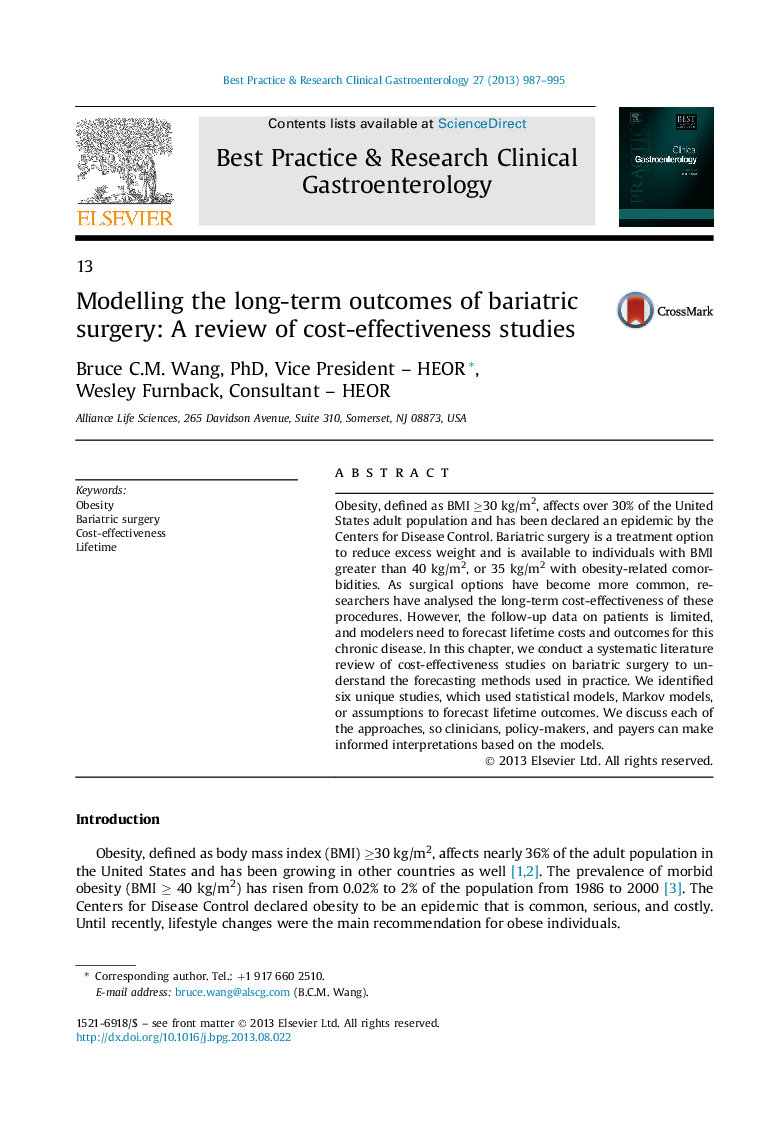| Article ID | Journal | Published Year | Pages | File Type |
|---|---|---|---|---|
| 6086441 | Best Practice & Research Clinical Gastroenterology | 2013 | 9 Pages |
Abstract
Obesity, defined as BMI â¥30 kg/m2, affects over 30% of the United States adult population and has been declared an epidemic by the Centers for Disease Control. Bariatric surgery is a treatment option to reduce excess weight and is available to individuals with BMI greater than 40 kg/m2, or 35 kg/m2 with obesity-related comorbidities. As surgical options have become more common, researchers have analysed the long-term cost-effectiveness of these procedures. However, the follow-up data on patients is limited, and modelers need to forecast lifetime costs and outcomes for this chronic disease. In this chapter, we conduct a systematic literature review of cost-effectiveness studies on bariatric surgery to understand the forecasting methods used in practice. We identified six unique studies, which used statistical models, Markov models, or assumptions to forecast lifetime outcomes. We discuss each of the approaches, so clinicians, policy-makers, and payers can make informed interpretations based on the models.
Related Topics
Health Sciences
Medicine and Dentistry
Endocrinology, Diabetes and Metabolism
Authors
Bruce C.M. (Vice President - HEOR), Wesley (Consultant - HEOR),
